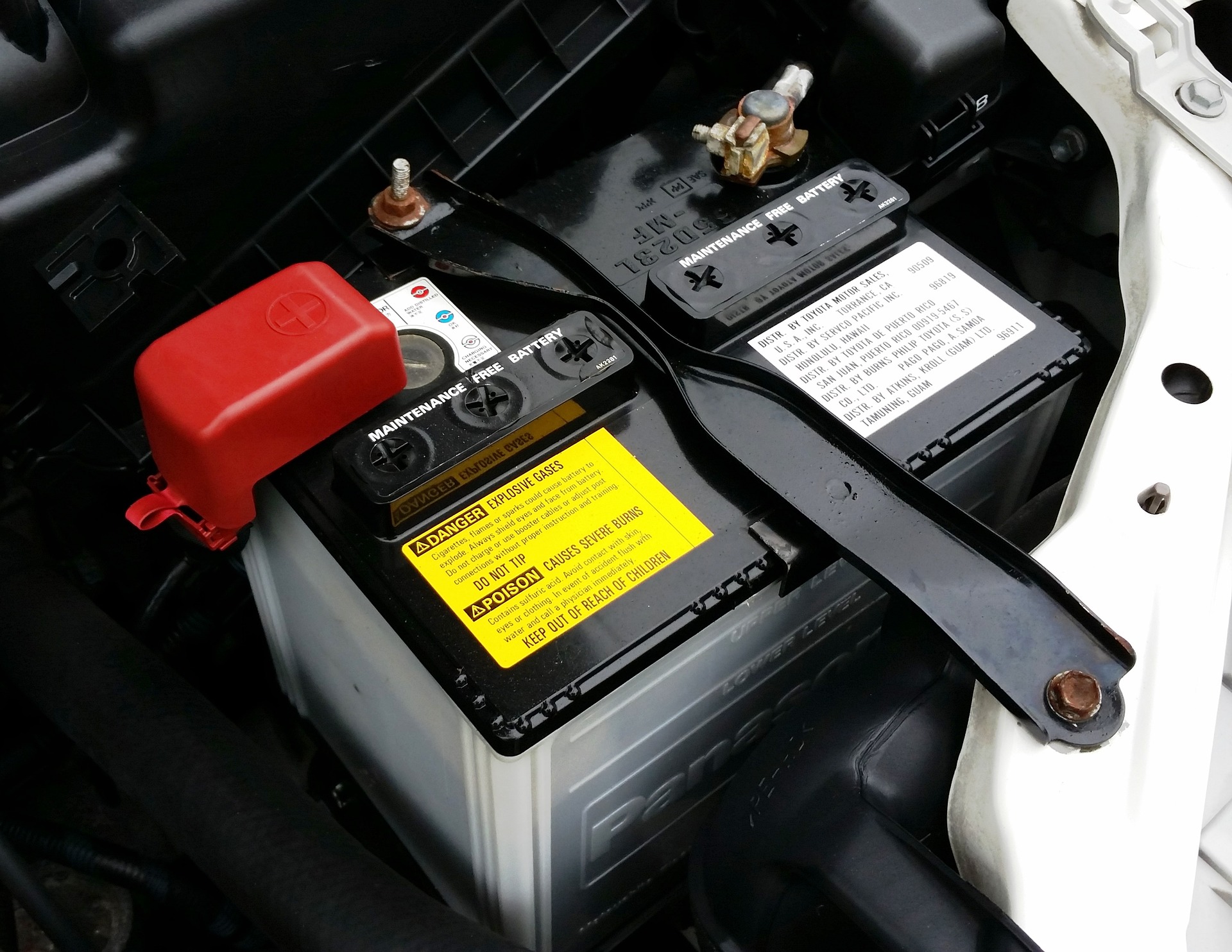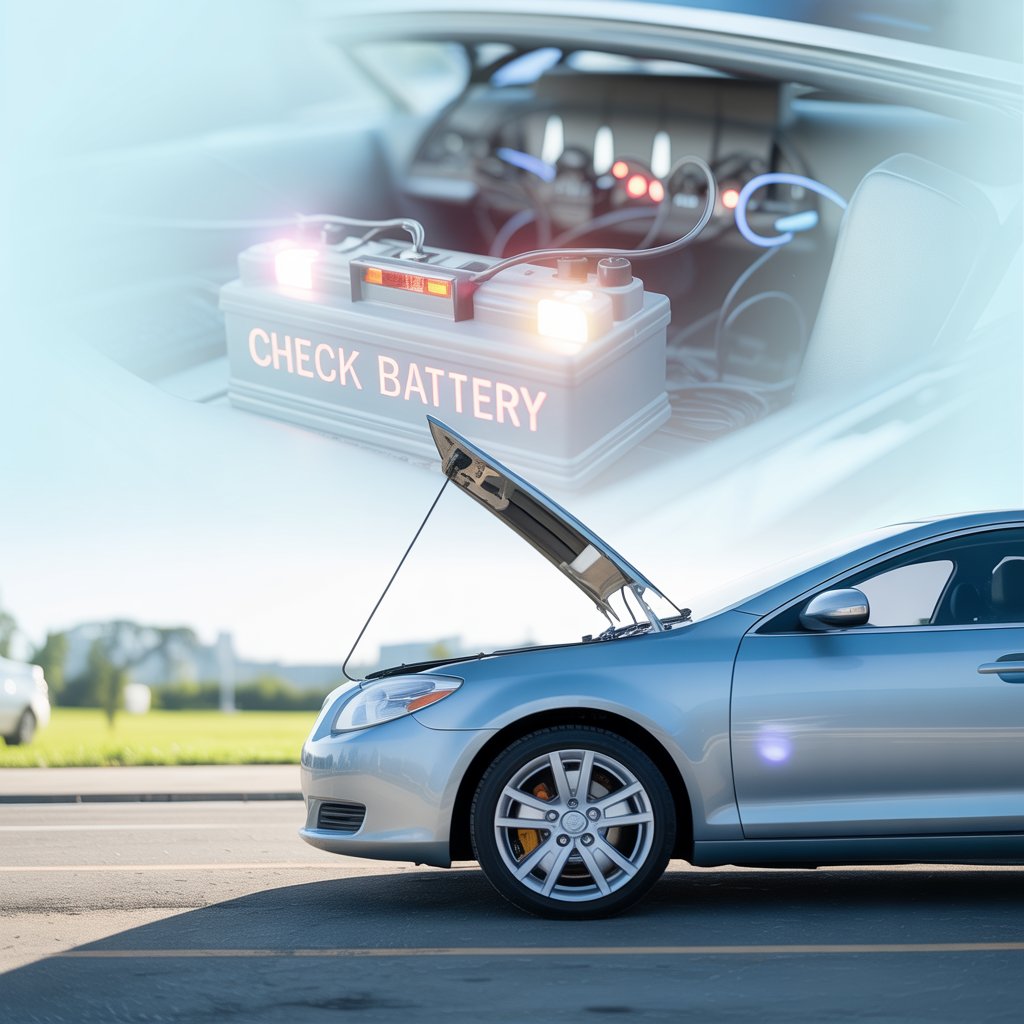Your car battery is the heartbeat of your vehicle. Without it, your car won’t start, leaving you stuck at the worst possible moment.
But how do you know when your battery is about to give up? Ignoring the signs can lead to unexpected breakdowns and costly repairs. You’ll discover the clear signals that tell you it’s time to replace your car battery. Keep reading to protect yourself from being stranded and save money in the long run.
At Sanjoy Auto Repair (Dubai), we specialize in 24/7 battery replacement and auto repair services. Based on our experience, here are the signs you should never ignore.
Signs Of A Weak Battery
A weak car battery shows clear signs before it fails. Knowing these signs can save you from unexpected trouble. Pay attention to how your car starts and how the electrical parts work. These clues help you decide if you need a new battery soon.
Slow Engine Crank
The engine takes longer to start. You hear a slow, grinding sound when turning the key. This means the battery has less power to run the starter motor. It struggles to give enough energy to the engine. This is often the first sign of a weak battery.
Dim Headlights
Headlights grow dimmer than usual, especially when the engine is off. They may flicker or look weak. A weak battery cannot supply enough power to keep the lights bright. This can also happen when you turn on other electrical parts. Dim lights warn you of battery trouble.
Electrical Issues
Other electrical parts may not work well. The radio, power windows, or dashboard lights may act strangely. Sometimes they fail to turn on or work slowly. These problems happen because the battery cannot supply steady power. Electrical issues are a strong sign that the battery is weak.
Battery Age And Lifespan
Knowing the age and lifespan of a car battery is key to avoiding sudden problems. Batteries wear out over time and lose their ability to hold a charge. Keeping track of your battery’s age helps you plan for a replacement before it fails. This saves you from being stranded with a dead battery.
Average Battery Life
Most car batteries last between three to five years. This depends on the type and quality of the battery. After five years, batteries often struggle to start the engine. Regular checks are important once the battery reaches three years. This helps catch issues early.
Factors Affecting Battery Life
Hot weather speeds up battery wear. Heat causes the battery fluid to evaporate. Cold weather can reduce battery power temporarily. Short trips prevent the battery from fully charging. Leaving lights or accessories on drains the battery. Corrosion on battery terminals reduces performance. Proper care and maintenance extend battery life.
Warning Lights On Dashboard
Your car’s dashboard shows important warning lights. These lights help you know if the battery or other parts have problems. Paying attention to these signs can save you from getting stuck with a dead battery. Watch the dashboard every time you start your car. It can tell you when the battery needs to a replaced.
Battery Warning Light
The battery warning light looks like a battery symbol. It glows when the battery is not charging properly. This can mean the battery is old or the charging system has issues. If this light stays on while driving, check the battery soon. Ignoring it may cause the car to stop working.
Check Engine Light
The check engine light can also mean battery problems. This light appears for many engine and electrical issues. Sometimes, a weak battery causes this light to turn on. If it stays on, get the battery tested. Replacing a bad battery can fix the problem and turn off the light.
Frequent Jump Starts
Frequent jump starts are a clear sign of a weak car battery. A battery that often needs a boost cannot hold enough charge. This can leave you stranded at the worst times. Recognizing this pattern helps avoid sudden car troubles.
Why Frequent Jump Starts Are A Red Flag
A car battery should start the engine without extra help. Repeated jump starts mean the battery is losing power fast. It struggles to keep the charge needed for normal use. This signals the battery is nearing the end of its life.
Signs That Jump Starts Are Becoming Too Common
Needing a jump every week or even a few times a month is a warning. The battery may still work, but not reliably. Slow engine crank and dim lights during start-up also hint at battery trouble. These signs suggest a replacement is needed soon.
Risks Of Ignoring Frequent Jump Starts
Ignoring the need for jump-starts can cause bigger problems. The battery might fail without notice. This can leave you stuck in traffic or far from help. Other car parts may get damaged from weak battery power. Safety and convenience are at risk.
Corrosion And Physical Damage
Corrosion and physical damage are clear signs your car battery may need replacing. These issues affect the battery’s performance and lifespan. Spotting them early helps avoid sudden battery failure and car troubles.
Corroded Battery Terminals
Battery terminals can get covered with white or blue powder. This is corrosion. It blocks the flow of electricity. Corroded terminals make it hard to start the car. Cleaning may help, but heavy corrosion means a new battery is needed.
Cracks Or Leaks
Inspect the battery case for cracks or leaks. These can let acid escape, damaging nearby parts. Cracks also allow moisture to enter, damaging the battery’s cells. Any visible damage like this means the battery is unsafe. Replace it right away to protect your car.
Testing Your Battery
Testing your car battery helps you know its health. It shows if the battery still works well or needs replacing. Simple tests can save you from sudden car troubles. You can test the battery at home or get professional help.
Using A Multimeter
A multimeter measures the battery’s voltage. Set the multimeter to DC volts. Connect the red lead to the battery’s positive terminal. Connect the black lead to the negative terminal. A healthy battery should read about 12.6 volts or more. If the reading is below 12.4 volts, the battery may be weak. Below 12 volts means the battery is likely bad. Test the battery after the car has been off for a few hours. This gives a more accurate reading.
Professional Battery Testing
Auto shops use special tools to test batteries. They check voltage, current, and charging ability. Professionals can also test the battery under load. This test shows how the battery performs in real driving conditions. Professionals find problems that simple tests miss. Testing takes only a few minutes. Many shops offer this service for free or a small fee.
Preventive Maintenance Tips
Taking care of your car battery helps it last longer and work better. Small habits can stop problems before they start. These tips help keep your battery strong and avoid sudden failures.
Keep Terminals Clean
Battery terminals often get dirty or corroded. Dirt stops electricity from flowing well. Clean terminals with a brush and a mix of baking soda and water. Do this every few months. It helps your battery charge properly.
Avoid Short Trips
Short trips do not fully charge the battery. The engine needs time to recharge the battery while driving. Try to drive longer when possible. This keeps the battery healthy and ready to start your car.
Regular Inspections
Check your battery regularly for cracks or leaks. Look for swelling or loose cables, too. If you see any problems, fix them fast. Regular checks can catch issues early and save you from getting stranded.

Frequently Asked Questions
How Long Does A Car Battery Usually Last?
A car battery typically lasts 3 to 5 years. Factors like climate and driving habits affect its lifespan. Regular checks help avoid unexpected failures.
What Are Common Signs Of A Failing Car Battery?
Common signs include slow engine crank, dim headlights, and electrical issues. If your battery struggles to start the car, it may need replacement.
How Can I Test If My Car Battery Is Bad?
You can test your battery using a multimeter or at an auto parts store. A voltage below 12 4 volts often indicates a weak or failing battery.
When Should I Replace My Car Battery Proactively?
Replace your battery every 3 to 5 years or if it shows signs of weakness. Proactive replacement prevents sudden breakdowns and ensures reliable vehicle performance.
Conclusion
A car battery does not last forever. Signs like slow engine starts or dim lights show it’s time to check. Regularly testing your battery helps avoid sudden problems. Replace the battery before it dies completely. This keeps your car reliable and safe.
Pay attention to how your car feels each day. Small issues now save big troubles later. Taking care of your battery is smart car care. Stay alert, and keep your car running smoothly.
At Sanjoy Auto Repair (Dubai), we believe prevention is the best solution. With 24/7 mobile battery replacement and professional auto repair services, we make sure you’re never stranded on the road.

